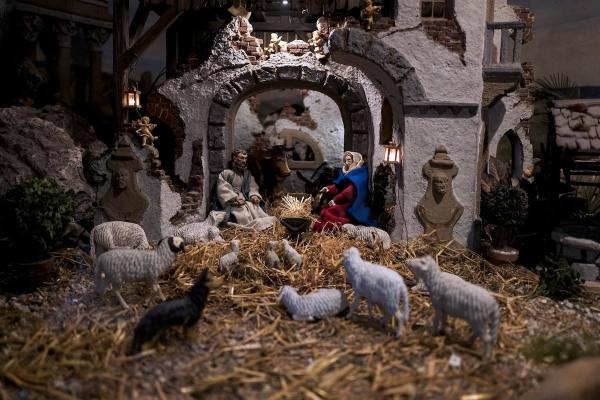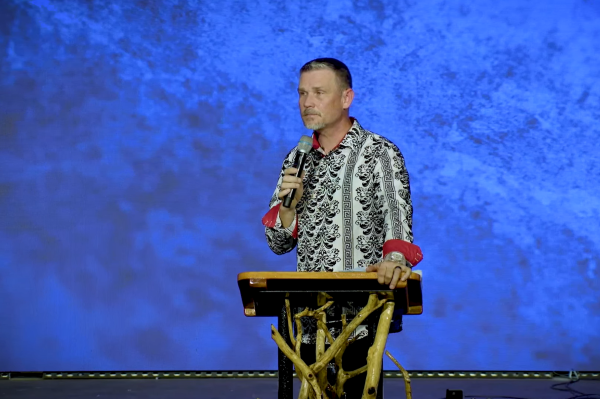Okla. Ten Commandments Display Going to Trial
STIGLER, Okla. (AP) - The 8-foot granite slab planted in the Haskell County courthouse lawn makes the Ten Commandments easy to read and hard to miss from the state highway that doubles as this town's main thoroughfare.
The monument, erected with private money in 2004 with the county's approval, doesn't stop traffic and courthouse visitors on a recent morning barely gave it a glance.
"I don't see anything wrong with it," said 73-year-old Launa Medlock. "We've got to have religion, too."
Still, it has drawn national attention, and county officials have been preparing to defend it in a trial that begins Monday in federal court.
Public support for the monument is strong in this town of 2,700, sitting 90 miles southeast of Tulsa. There's a church for roughly every 125 men, women and children, and two signs advertising places of worship flanking the courthouse lawn.
John Altstatt, a 42-year-old contractor who does business with the county, said some people might see the marker as "church pushed down their throat." But he expressed ambivalence.
"I don't have to look at if I don't want to," he said.
The lawsuit challenging the marker's location comes amid national debate over displays of Ten Commandments on public property. Court challenges have yielded mixed results.
The U.S. Supreme Court, in a pair of 5-4 rulings last year, allowed the Ten Commandments to be displayed outside the Texas state Capitol but not inside two Kentucky courthouses, where the justices said they promoted a religious message. The court ruled religious displays are not inherently unconstitutional and must be considered on a case-by-case basis.
The non-jury trial, being held in Muskogee before U.S. District Judge Ronald White, centers on an argument that the monument violates constitutional protections against government endorsement of religion.
The American Civil Liberties Union filed the complaint against the Haskell County commissioners on behalf of James W. Green, a retired veteran and longtime county resident.
"All Mr. Green is asking is that the government not show favoritism for a religious document which is in his mind contrary to the greater message of Jesus' teaching," said Micheal Salem, an attorney representing Green. The lawsuit seeks no damages — only that the monument be declared unconstitutional and ordered removed from public property.
A local lay pastor, Mike Bush, won permission from county commissioners to erect the monument and raised funds with the help of Haskell County churches and youth groups.
The commissioners say they granted Bush's request because of the historical significance of the Ten Commandments and the Mayflower Compact, which appears on the marker's reverse side.
Because the county had allowed other monuments on the courthouse lawn — including tributes to war dead, two graduating classes and Choctaw Indians who died on the Trail of Tears — it could have been sued had it denied Bush's request, said Joel Oster, an attorney representing Haskell County in the suit.
"This is a free speech case," Oster said. "There's just a lot of stuff on this courthouse lawn. If the county commissioners had told Mike 'no,' it would have violated his rights."
In March, the county passed a resolution intended to codify what had been previously described as a verbal policy involving placement of monuments on county property. The written policy, which the ACLU called a "facade," included the criteria that the monument be related to the history of Haskell County.
Salem said courts have ruled against monuments when their main purpose has been found to be endorsement of religion.
"There is no talk in Stigler of placing the five pillars of Islam on the courthouse lawn," he said. "There is no talk about selecting some other religious doctrine to be venerated. It's very clear the county government was playing to a popular notion."
Copyright © 2006 The Associated Press. All rights reserved. The information contained in the AP News report may not be published, broadcast, rewritten or redistributed without the prior written authority of The Associated Press.





















